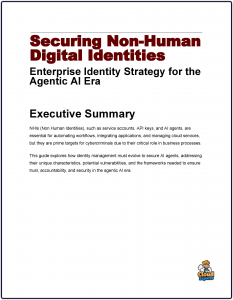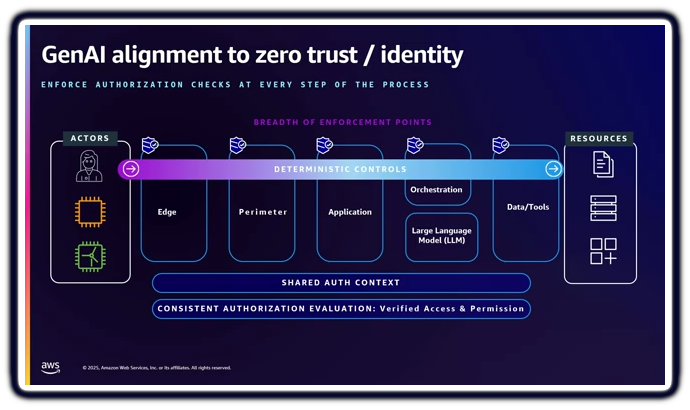Managing Digital Identity in the Age of Generative AI on AWS
Ensuring secure, trustworthy, and compliant digital identities is critical, and AWS offers a robust suite of tools to address these challenges effectively.
 Managing digital identity in the era of generative AI presents unique challenges and opportunities, particularly when leveraging Amazon Web Services (AWS).
Managing digital identity in the era of generative AI presents unique challenges and opportunities, particularly when leveraging Amazon Web Services (AWS).
As generative AI transforms industries by creating hyper-realistic content and automating interactions, it introduces risks like impersonation, synthetic identity fraud, and sophisticated phishing attacks.
Ensuring secure, trustworthy, and compliant digital identities is critical, and AWS offers a robust suite of tools to address these challenges effectively.
Generative AI Security
Generative AI’s ability to mimic human behavior, such as through deepfakes or AI-driven bots, complicates authentication and verification processes. Traditional methods like passwords are increasingly vulnerable, as AI can exploit public data to bypass security measures.
Additionally, distinguishing human users from AI entities is crucial, especially as CAPTCHAs become less effective. Privacy concerns also arise, with regulations like GDPR demanding careful handling of identity data used in AI applications.
Scalability further complicates matters, as AI-driven systems require real-time identity verification to support high-traffic environments like e-commerce.
AWS provides comprehensive solutions to tackle these issues. AWS Identity and Access Management (IAM) ensures secure access control through fine-grained policies and multi-factor authentication (MFA), reducing the risk of credential theft. For customer-facing applications, Amazon Cognito offers seamless authentication with adaptive risk-based checks to counter AI-driven attacks.

To combat fraud, Amazon Fraud Detector uses machine learning to analyze user behavior and detect anomalies, such as synthetic identities, while integrating with Amazon Rekognition for biometric verification. These tools ensure robust defenses against impersonation and automated threats.
Data privacy is another critical focus. AWS Key Management Service (KMS) encrypts sensitive identity data, and Amazon Macie identifies and protects personally identifiable information (PII) to ensure compliance.
For scalability, AWS Lambda and Amazon API Gateway enable serverless, real-time identity workflows, securing APIs with OAuth and JWT validation. Continuous monitoring is achieved through AWS CloudTrail for auditing and Amazon CloudWatch for real-time insights, with AWS GuardDuty detecting malicious activities like AI-driven reconnaissance.
By adopting a zero-trust approach, organizations can leverage AWS to build secure, scalable identity systems. For example, a financial services application might use Cognito for authentication, Fraud Detector for fraud prevention, and Bedrock for AI-driven personalization, all while ensuring compliance through KMS and Macie. AWS empowers organizations to navigate the complexities of digital identity in the generative AI era, delivering security and innovation.



